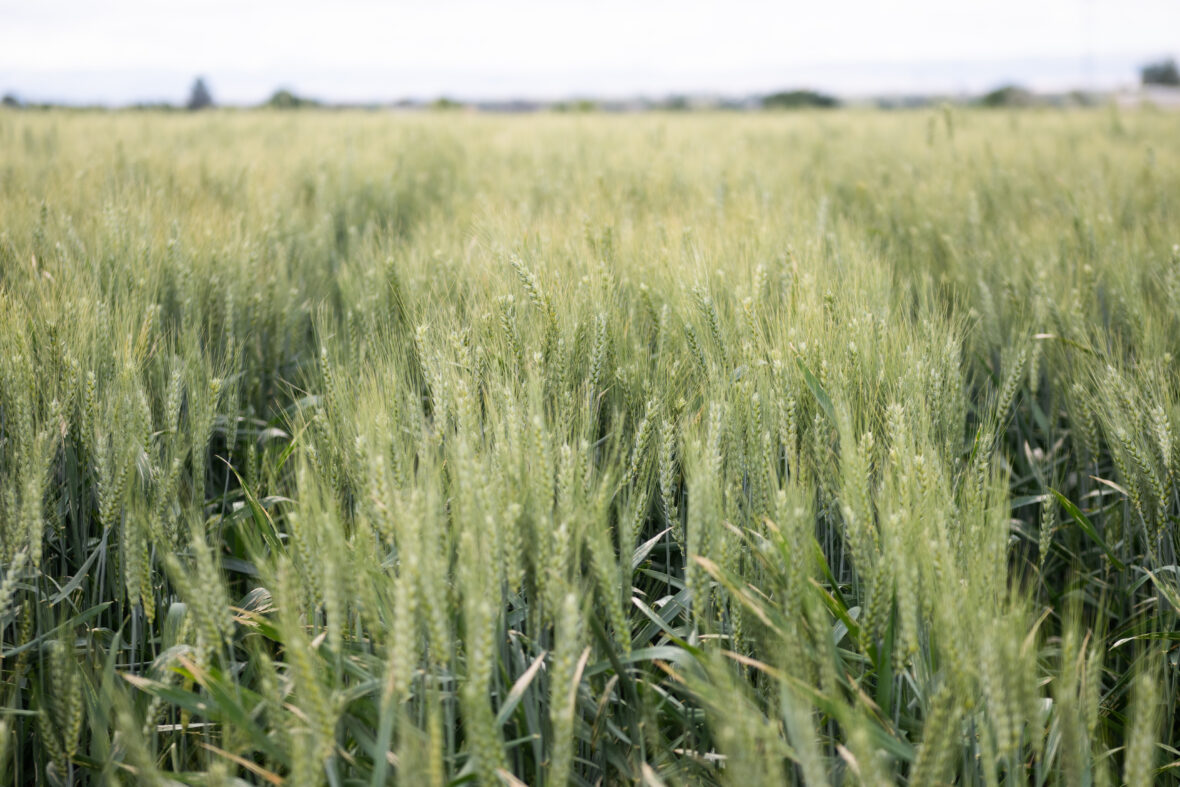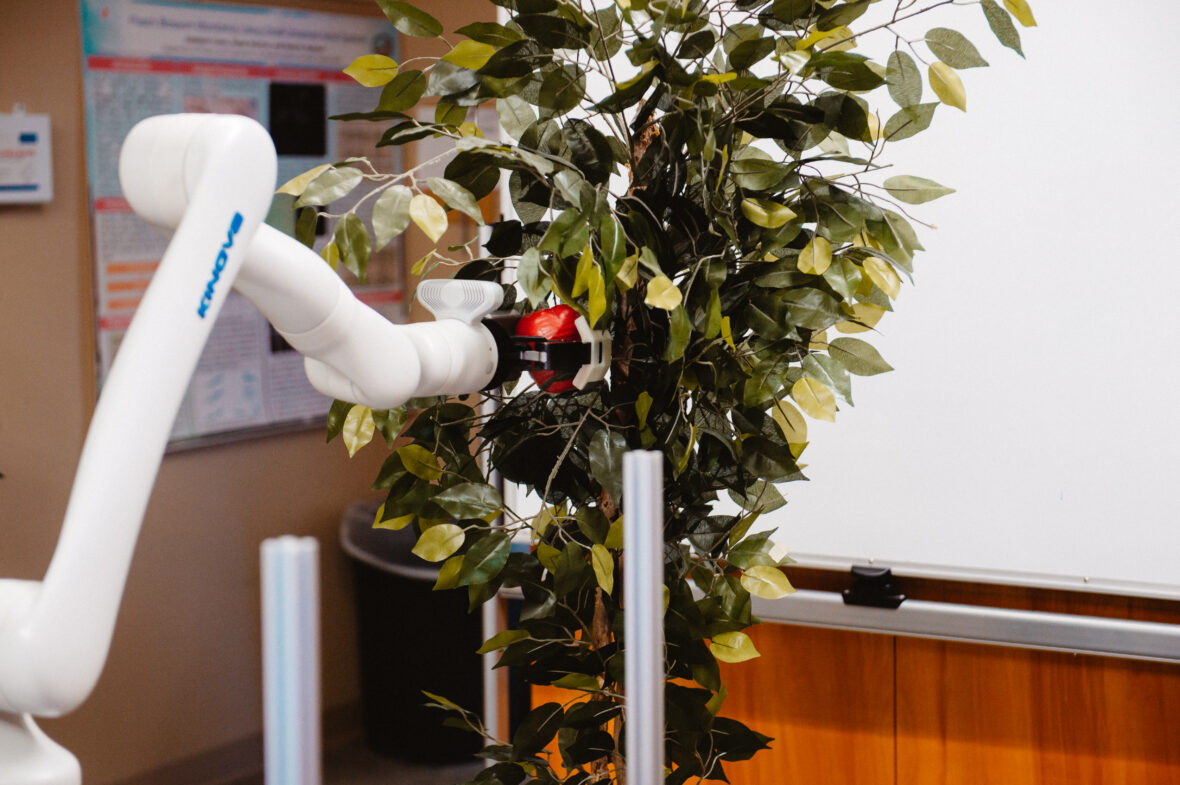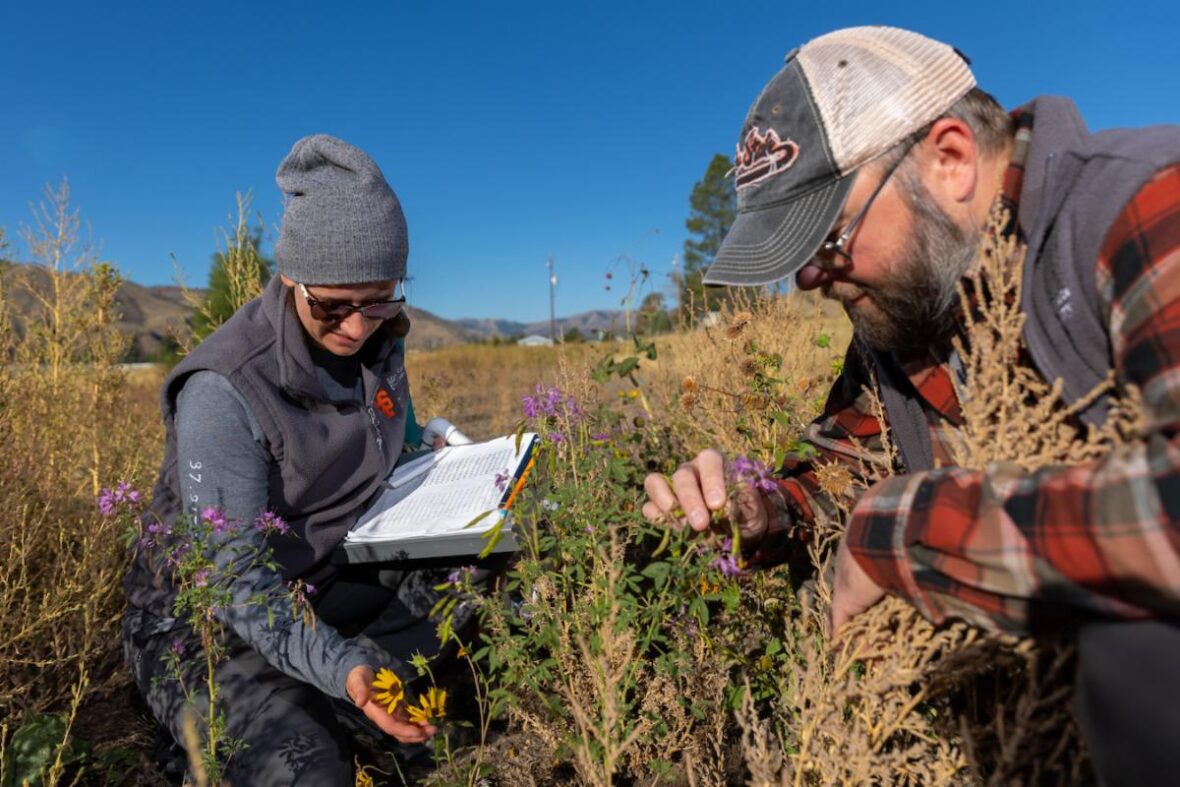
The University of Idaho will use a record grant to study farming and ranching practices that could reverse climate change.
The five-year, $55 million grant will come from the U.S. Department of Agriculture. More than half of the money will go directly to more than 100 farmers and ranchers — who will use climate-friendly practice designed to prevent the release of 100,000 tons of carbon dioxide annually.
“While this is a monumental achievement for our university, the big winners will be Idaho farmers and ranchers who are willing to try new approaches to producing food, with the goal of making their operations more sustainable and protecting the environment,” said Christopher Nomura, the U of I’s vice president of research and economic development.
The research will focus on Idaho’s signature ag commodities: potatoes, beef, sugar, wheat, barley, hops and chickpeas.
The Coeur d’Alene and Nez Perce Indian tribes, the Idaho Association of Soil Conservation Districts, The Nature Conservancy’s Idaho chapter and industry partners are part of the research team.
“A lot of companies big and small see the handwriting on the wall — that the need for a climate-friendly pipeline is not going away, and if they’re staying competitive in the industry, they’ve got to get on board,” said Sanford Eigenbrode, a distinguished professor in the U of I’s Department of Entomology, Plant Pathology and Nematology.
The grant is twice as large as the U of I’s previous record award.
“Climate-Smart Commodities for Idaho: A Public-Private-Tribal Partnership” is among 70 projects that will share $2.8 billion in USDA grants.
Can robots lend a hand on orchards? NNU is researching the idea
A state grant will support ongoing robotics research at Northwest Nazarene University — aimed at providing high-tech help for fruit harvesting.

For the past several years, faculty and student researchers have been working on the device, dubbed OrBot.
“This grant will help our engineering students continue to improve the performance of the fruit harvesting robot named OrBot that we have designed and built,” NNU engineering professor Duke Bulanon said. “It will be beneficial in helping us continue to move forward with this project as we strive to meet the agricultural needs in our local area.”
The $101,000 grant comes from the Idaho Department of Agriculture.
Highway habitats: Idaho State researchers look to restore native plants along I-15
You might not notice, while driving at (or above) the speed limit.
But Idaho State University researchers are paying attention to the plants that grow along Interstate 15 in Eastern Idaho — and, ideally, what plants should grow there.

The researchers are studying three sagebrush-laden sites along I-15, looking for ways to encourage native plants, squeeze out invasive weeds, improve fire resistance and create habitat for bees, butterflies and other pollinators.
“There are roughly 28,000 miles of road managed by the Idaho Transportation Department. Consequently, that’s a lot of roadsides to manage,” said Joshua Grinath, an assistant professor of community and global change ecology at Idaho State. “Roadside management is most commonly focused on a single issue, such as erosion control, but other challenges may be able to be addressed simultaneously. Considering these issues simultaneously will help ITD save taxpayers money and address urgent land management concerns.”
The research team is studying how different approaches to mowing, seeding and herbicide treatments can help native plants survive better along roadsides.
Grinath and master’s biology student Erika Stewart will present their findings to ITD in late 2023.
The research is funded largely through an ITD grant, with additional funding from Idaho State’s College of Science and Engineering and Office of Research.
